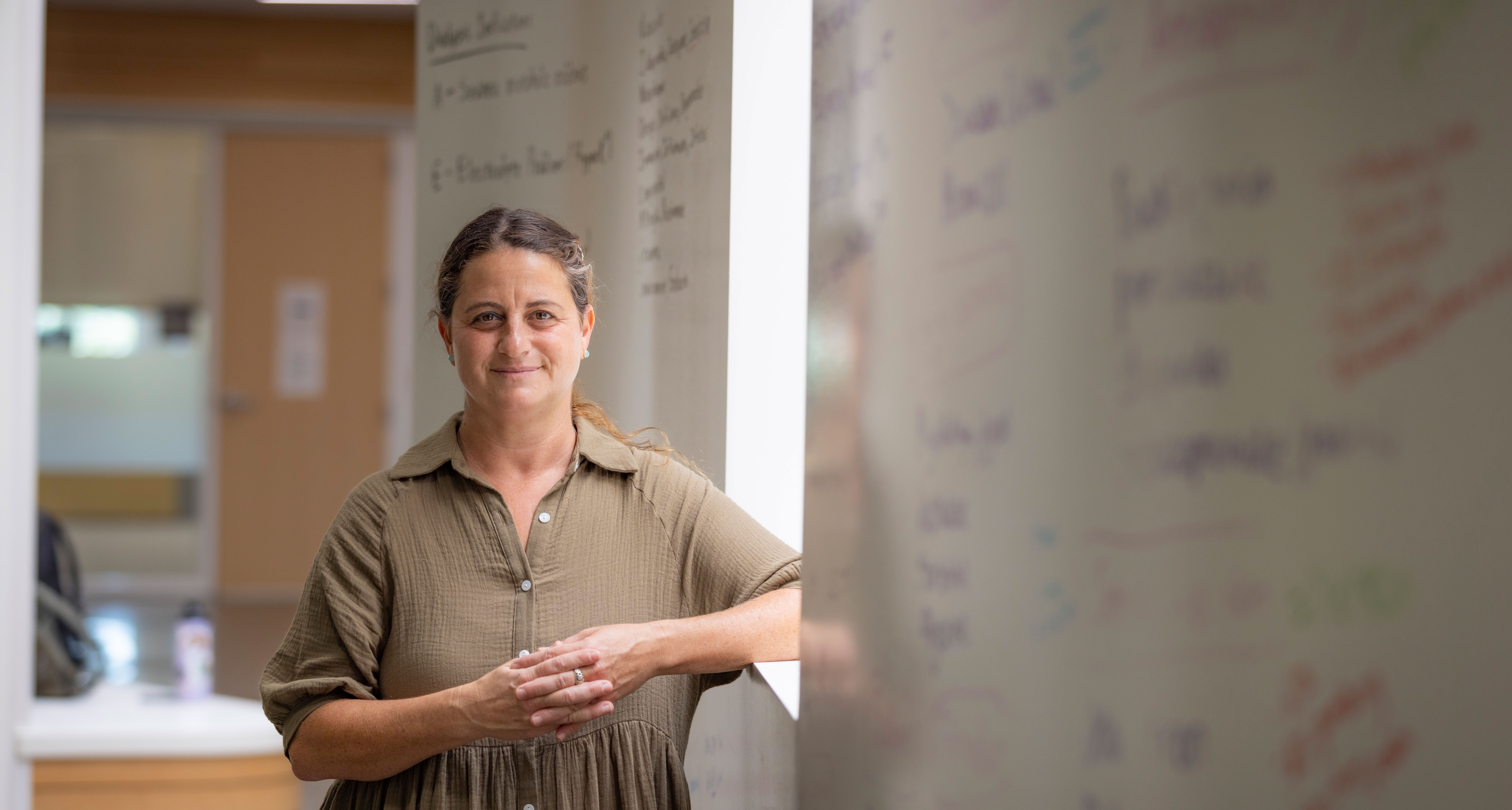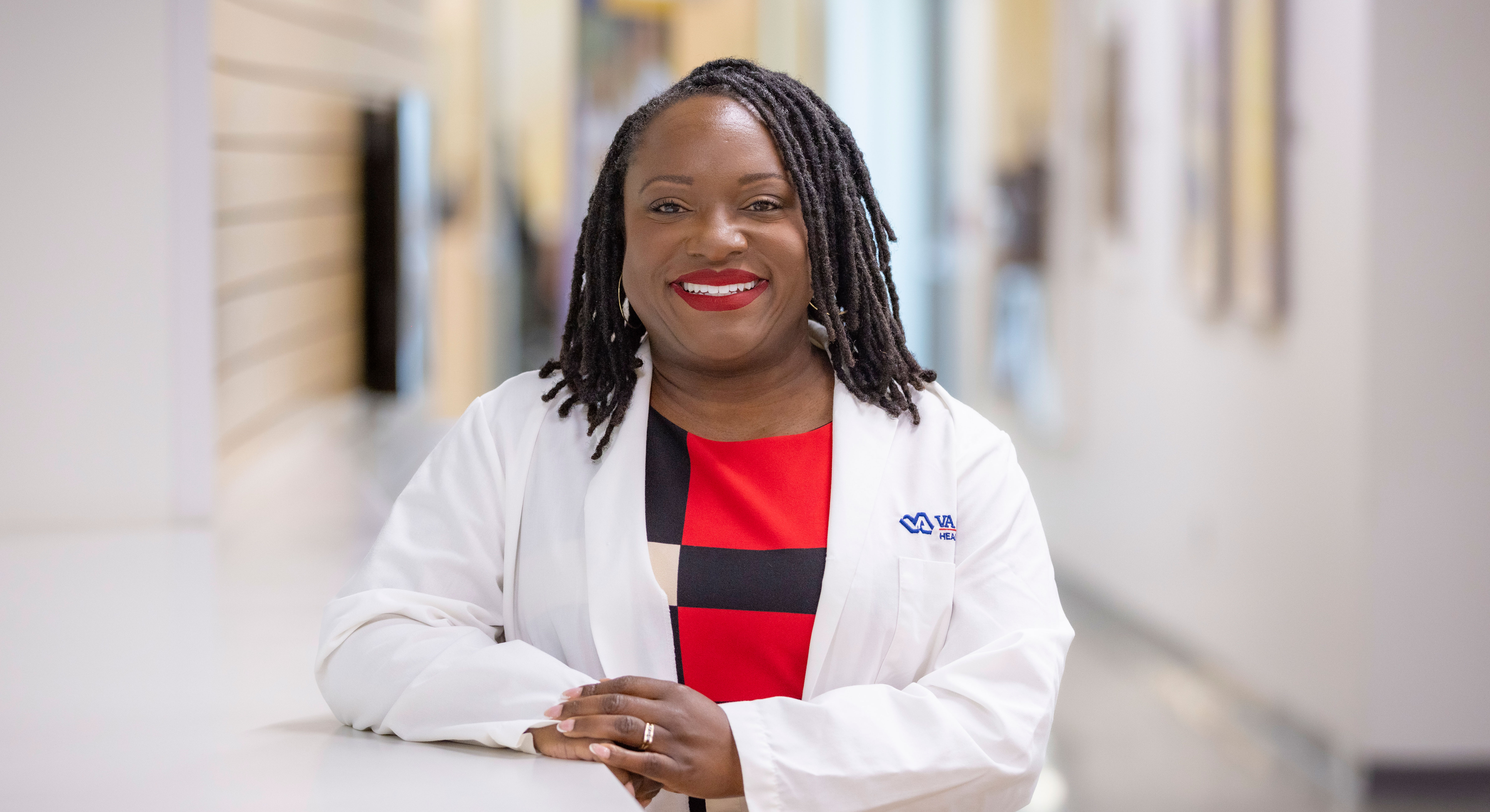Marla Shauer got the research bug in eighth grade, when she won the science fair. A few decades and many hours of study later, she completed a Doctor of Philosophy degree so she could make the change she wanted to see happen.
She chose the Betty Irene Moore School of Nursing at UC Davis for its flexibility, financial support and faculty mix.
“We have a very diverse and robust group of scientists and faculty that, I think, really contributes to a deeper understanding of the issues,” Shauer, a member of the PhD Class of 2024, said. “When you have people on the ground doing clinical care, but also people who have public health perspective or that sociologic perspective or that psychology mind-body perspective, it really brings a lot of richness to our work.”
A nurse midwife wonders ‘why’
Shauer went into nursing to take care of people and give back to the community. As a certified nurse midwife, she has spent most of her 25-year nursing career in 14 settings, including hospitals, clinics and birthing centers located throughout inner cities and rural settings.
“I love the intersection between the art and science of midwifery,” Shauer said.
Those years of being with birthing persons in delivery left her with nagging questions: how important is autonomy when making birth decisions and what happens when they are pressured to undergo obstetric interventions they don’t want?
“People want to be heard. They want support. They definitely don't like being pressured and we now have numeric evidence from a national sample from over 1850 women,” she explained of her dissertation findings. “So, why are they feeling less respected? What’s going on where the provider or the system or the policy is creating this kind of power asymmetry or hierarchy where the patient feels left out?”
“With its focus on health equity, Dr. Shauer’s dissertation embodies the school’s vision and her innovative approach yields results with important clinical, policy and ethical implications,” said Janice F. Bell, association dean for research and Shauer’s dissertation chair.
“Never felt alone”
Shauer credits answering some of those questions and developing a respect score with the support she received from PhD program faculty at the School of Nursing.
“I feel in love with the school, the mission and the active learning construct. We were able to pick our research topic, pick our mentors and were encouraged along the way,” Shauer explained. “I never felt I was walking the path alone. I had so much support from the school and my cohort.”
Shauer found out she’d been accepted to the program on March 13, 2020. That same day she was sent home from work for the beginning of COVID-19 lockdowns.
Four years and countless hours of determination she completed what she set out for, despite the uncertainties along the way.
“Some people went through school in four years. Some people had babies, took a semester off, took a year off. Some even changed the focus of their research during the during their education. And the Betty Irene Moore School of Nursing worked with all of us,” she said.
Advancing the questions
With lingering questions and a newly minted degree, Shauer now looks to advancing her research. They include:
- Developing informed consent policies and procedures regarding autonomy and agency
- Administering the respect score survey again to current patients and providers
- Asking providers of their understanding of autonomy and agency in perinatal care
And she has advice for prospective students who have nagging questions of their own.
“I think a good fit for this program is someone who’s willing to set aside the time needed to the do the work,” she explained. “You can be an innovator. You can be really shy and quiet. You can be a clinician who wants to do more than show up to your job 36 to 80 hours a week.”






